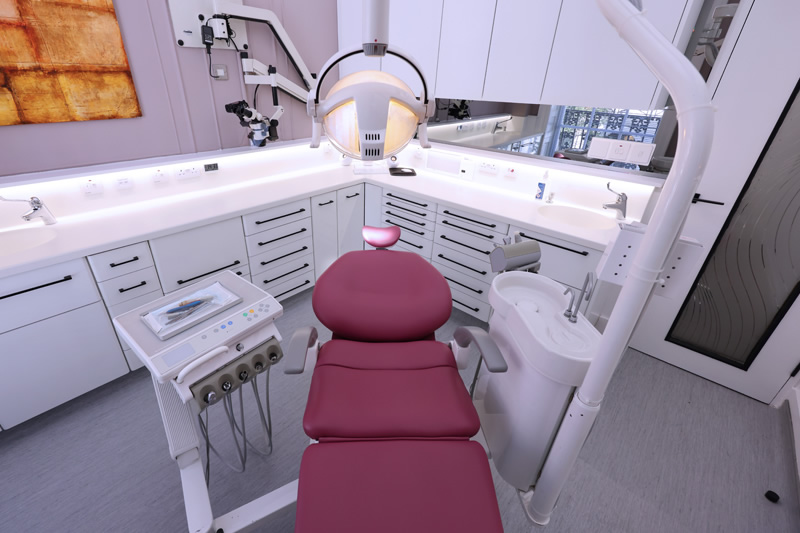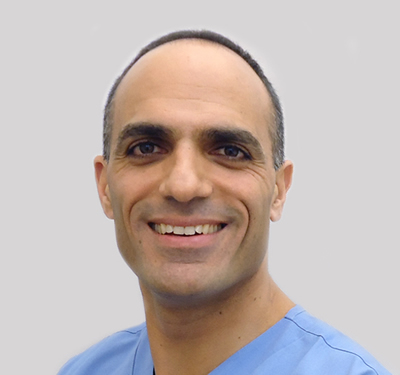-

Dental Implant Specialists
Get a stunning natural looking new smile
5-star rated practice
Over 30 years experience
Restore your smile
Get a stunning natural looking new smile
5-star rated practice
Over 30 years experience
Restore your smile
At our Harley Street clinic in London we firmly believe that the numerous benefits of using dental implants to replace a missing tooth far outweigh the risks of dental implants. However, as with any dental or surgical procedure there is always some element of risk, which is why we take our pre-treatment consultation and examination process so seriously.
During your dental implant consultation at our Harley Street clinic in London, your specialist will explain any risks or possible complications of dental implant and answer any questions about tooth implants that might concern you.







Our principal dentist and specialist prosthodontist, Dr Mehran Sanei (GDC No. 67683), who performs the implant treatments, is also recognised by the American Dental Association as a Specialist in Prosthodontics.
With over 30 years of extensive dentistry experience, he has also given national and international lectures on Cosmetics and Implantology. He has been an active member of the American Dental Society of London since 1999.
To book your implantologist consultation, please call us today on 020 7935 3914.
Tooth implant procedures are performed using local anaesthesia thus removing the risks of dental implants usually associated with general anaesthetic. Local anaesthetic can carry risks including allergic reactions and paraesthesia (when the anaesthetic effect lasts longer than expected) but the expert dental implant specialists at our Harley Street clinic in London are well trained in spotting and dealing with potential issues. A detailed medical history, taken by our Harley Street specialists, will usually clear up possible problems before they occur.
Although dental implants are by far the most natural and long lasting of tooth replacement solutions, they are not suitable for everybody. There are some health conditions that preclude the placement of implants, consultants at our Harley Street clinic in London will explain these to you and answer your questions about the complications of dental implants.
Successful tooth replacement surgery relies on a good standard of general health and the risks of treatment failure with dental implants are higher in patients who smoke or those who have diabetes. Poor oral hygiene can cause dental implant complications so any dental decay, gum disease or damaged teeth will need to be treated at our Harley Street or other London clinics before tooth replacement can commence.
The placement of tooth implants can be done at our Harley Street practice. This is a surgical procedure because the implants themselves have to be either tapped or screwed into either the mandible (lower jawbone) or maxilla (upper jawbone). This procedure and following procedures also involve some manipulation of the soft tissues in the gums. Alongside the small chance of infection that all surgical procedures carry, the complications of dental implant include:
At our Harley Street clinic in London all of our patients take part in a thorough consultation and examination process before dental implant placement. At this point, they get the opportunity to ask questions about the risks of dental implants. Our surgeries take place in the appropriate, sterile environment and all of our Harley Street patients are encouraged to commit to on going preventative oral hygiene appointments.
Less than 1% of dental implants fail and most of our Harley Street patients finish treatment totally satisfied with the results. Even where placement is not successful the first time, steps can usually be taken to ensure subsequent success and the replacement of a missing tooth. Long-term complications of dental implant might include:
A lack of bone in the implant area. The longer a tooth has been missing, the less bone there will be in that area. This issue will be usually be picked up by our consultation process and does not necessarily mean that dental implants cannot eventually be placed. Bone volume can be increased via bone grafts or sometimes the implant site can be made suitable by skilful manipulation.
Movement of dental implants before osseointegration has occurred. When we break a limb, we immobilise it in order to allow new bone growth to heal the fracture. Tooth implants work in a similar way and are vulnerable to disturbance whilst remodelling of the bone occurs. Implants are not stable when they are first inserted and will require some protection.
Many of the risks of dental implants shown above are entirely avoidable and at our Harley Street clinic in London we believe our level of expertise and experience minimise dental implant complications. Dr Sanei, our principal dentist holds a Masters Degree in Prosthodontics from the Ohio State University (USA) and has given national and international lectures on the topic of implantology.